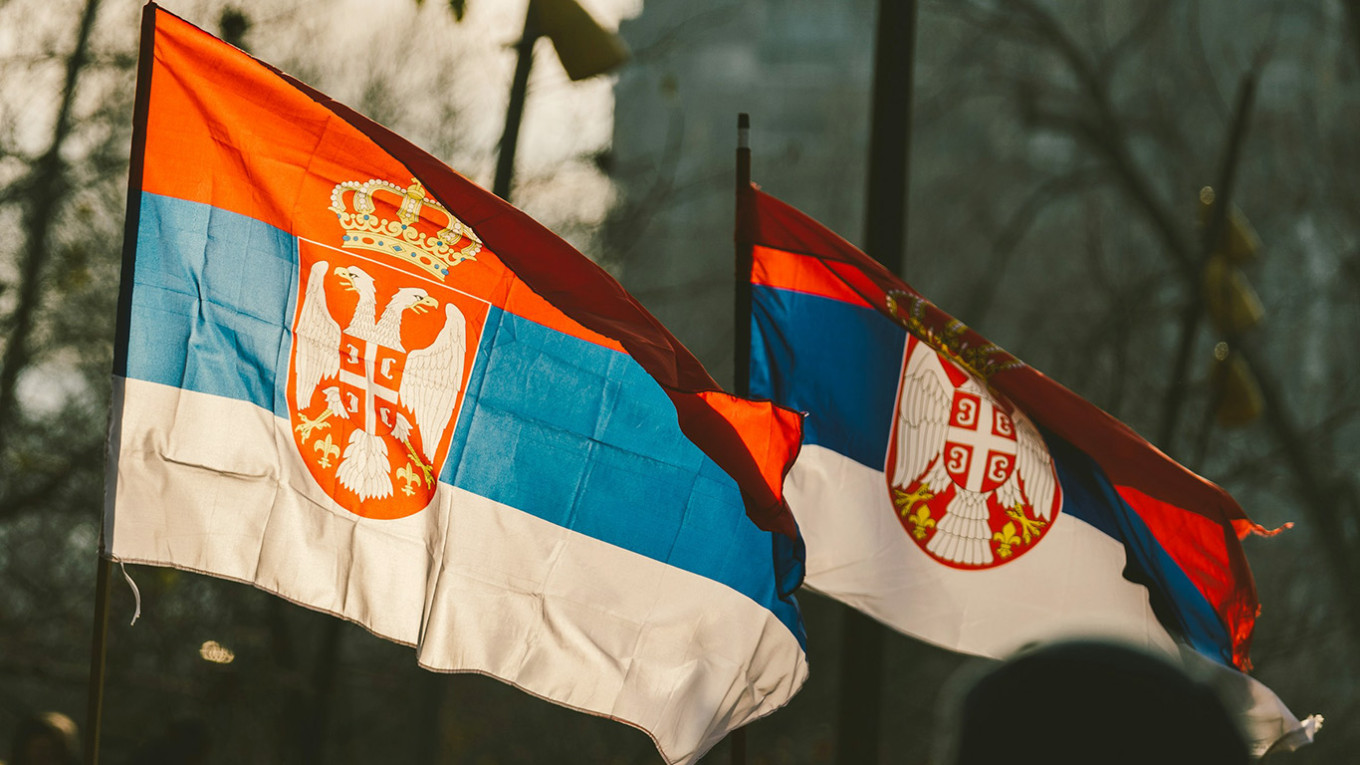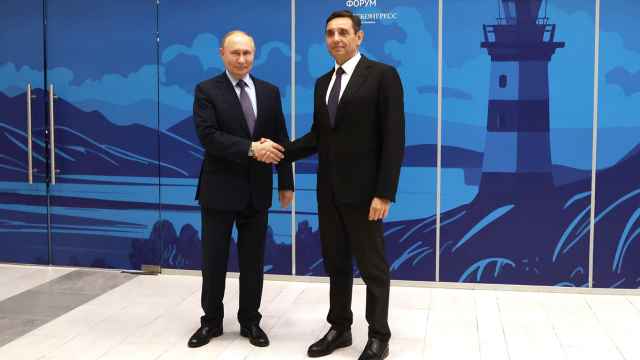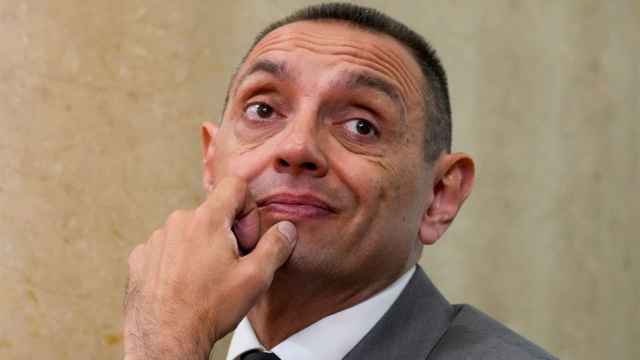Serbian authorities have issued passports to dozens of Russians with Kremlin ties since the full-scale invasion of Ukraine, the investigative news outlet IStories reported Wednesday, citing government data.
A total of 204 Russians were naturalized as Serbian citizens between early 2022 and April 2025, including many with links to Russia’s defense industry and intelligence services, the outlet said.
Among those granted citizenship are 11 current and former executives of sanctioned Russian defense firms and their family members, including spouses and daughters. These firms include Radio-Electronic Technologies Concern (KRET), Elekon, the Kazan Optical and Mechanical Plant, as well as Almaz-Antey.
One recipient, Viktor Shendrik, reportedly served in the FSB’s elite Vympel unit and acted as a top bodyguard for President Vladimir Putin and his billionaire associates Arkady and Boris Rotenberg. Others were linked to Chechen leader Ramzan Kadyrov, or to Umar Kremlev, president of the International Boxing Association, and his associate, Presidential Security Service chief Alexei Rubezhnoy.
Nine passport recipients were identified as current or former executives at sanctioned banks, including VTB, Gazprombank and Dom RF.
None of the newly naturalized citizens appear on Western sanctions lists and can travel visa-free across the EU, according to IStories. Holders of Serbian passports have access to 29 countries within the Schengen Area, which allows for passport-free travel across most of Europe.
IStories also reported that more than 30 Russians who received Serbian passports in 2024 were tied to Russian state institutions or major businesses.
Ilya Shumanov, former head of Transparency International Russia, suggested the mass passport issuance could be part of a covert Moscow-Belgrade arrangement in which Russia provides financial support to Serbian authorities.
A Message from The Moscow Times:
Dear readers,
We are facing unprecedented challenges. Russia's Prosecutor General's Office has designated The Moscow Times as an "undesirable" organization, criminalizing our work and putting our staff at risk of prosecution. This follows our earlier unjust labeling as a "foreign agent."
These actions are direct attempts to silence independent journalism in Russia. The authorities claim our work "discredits the decisions of the Russian leadership." We see things differently: we strive to provide accurate, unbiased reporting on Russia.
We, the journalists of The Moscow Times, refuse to be silenced. But to continue our work, we need your help.
Your support, no matter how small, makes a world of difference. If you can, please support us monthly starting from just $2. It's quick to set up, and every contribution makes a significant impact.
By supporting The Moscow Times, you're defending open, independent journalism in the face of repression. Thank you for standing with us.
Remind me later.






